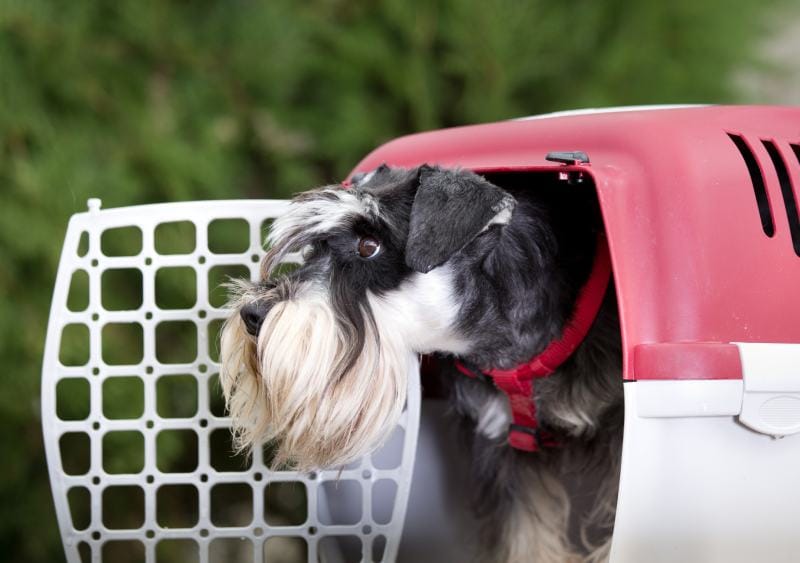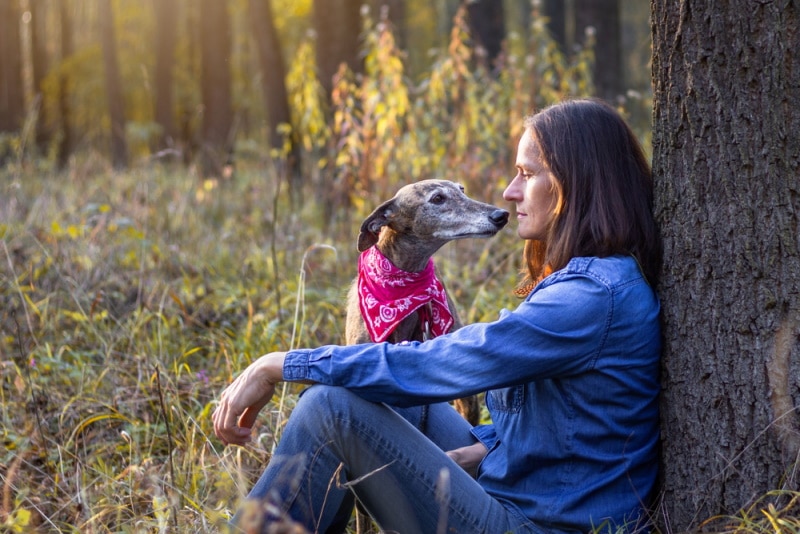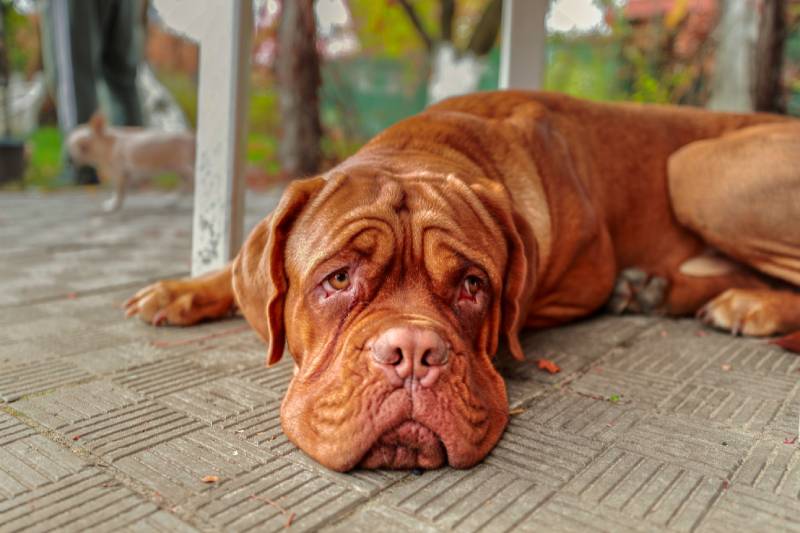How Long Can a Dog Go Without Eating? The Surprising Answer!
By Lorre Luther
Updated on

If your pup has spent the last few days uninterested in eating, you might be wondering how long they can safely go without food and if you should contact your dog’s veterinarian. Most dogs that are drinking water can technically go for around 3 days without eating 1, but that doesn’t mean it’s healthy or that you should accept the situation and do nothing. If your dog shows any other signs of illness, such as lethargy or vomiting, it’s best to immediately reach out to your veterinarian. Otherwise, you can wait for 24 hours or so to see if there’s any improvement. Puppies, however, need to eat every few hours and should be seen by a veterinarian immediately if they lose interest in food 2.
Why Is My Dog Not Eating?
It depends. There are many reasons dogs won’t eat, from the mundane to the serious. Dogs have been known to “stop” eating because they get plenty of “nourishment” from treats. On the other hand, a lack of appetite can also signify something more serious such as dental disease or cancer. The reasons dogs stop eating fall into three distinct categories: medical problems, stress, or issues with the food itself.
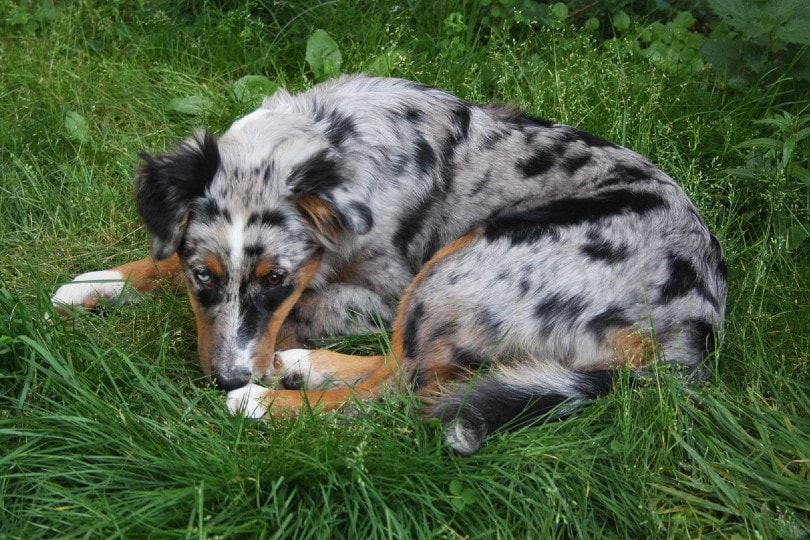
Medical Issues
Lack of an appetite is often a sign of illness in dogs, just as it is in humans, and it can signify that your dog has any number of illnesses such as gastroenteritis, dental issues, parasites, or pancreatitis.
Stress or Anxiety
Dogs often stop eating or eat far less when they’re under stress. Lack of interest in food is a very common indication that a dog is feeling anxious. Common stressors that often lead to food avoidance include changes in the environment such as moving, the arrival of a new baby, or the introduction of another animal to the home.
Some dogs are sensitive to loud noises such as fireworks, home repairs, and construction. Others just don’t like to eat around other animals, particularly if there’s a bit of bullying or food competition. As a general rule, dogs that have stopped eating because of stress will return to their food bowls within a day or so of the stressor being removed from their environment.
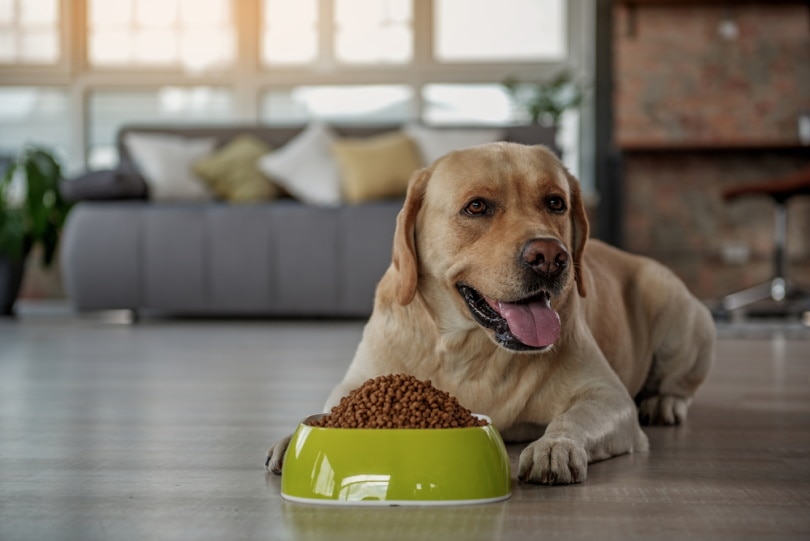
Food Issues
Dogs can be finicky when it comes to food! If your dog is otherwise healthy but uninterested in the kibble from the bottom of a large bag, your companion might be unhappy with the taste of their dinner. Check the expiration date on the bag and consider investing in an airtight container to keep the food fresh for longer. Also, some dogs lose their appetite because there’s no control over the feeding regime, and they’re full after eating tasty human food or too many treats.
Is There Anything I Can Do To Encourage My Dog to Start Eating Again?
Start by ensuring you’re giving your dog fresh food that hasn’t expired. Buy a small bag or a few cans of their favorite food and see if that helps move things in the right direction. Try giving your dog wet food! Most dogs prefer the taste of canned or pouched food, and it can also give you a clue about what might be ailing your companion. If your dog avoids kibble but happily eats canned food, your pet may have a dental issue that’s making it hard for them to chew—this is more likely if you have a senior canine.
What About Senior Dogs?
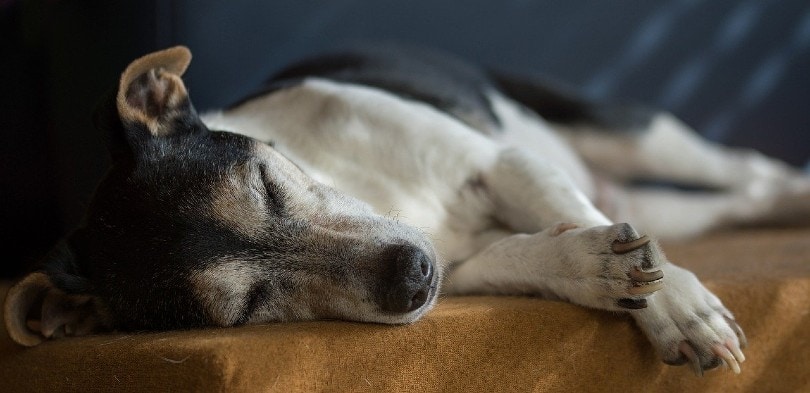
Older dogs sometimes stop eating because they’re having cognitive difficulties making it difficult to remember where their food bowl is located. And if your senior pet has trouble seeing, it’s essential to put their food and water bowls in the same location every day to help minimize confusion.
While it’s usually okay to wait for a day or two if your dog stops eating, it’s best to reach out sooner if you’re dealing with an older pet. Most veterinarians suggest reaching out if your senior dog hasn’t eaten in 24 hours.
Finally
In conclusion, while it is technically possible for dogs to go 3 days without food as long as they are drinking you should reach out to your vet before this. There are many reasons a dog may stop eating and it can take some detective work to find out why.
See also:
Featured Image Credit: renatolaky, Pixabay



